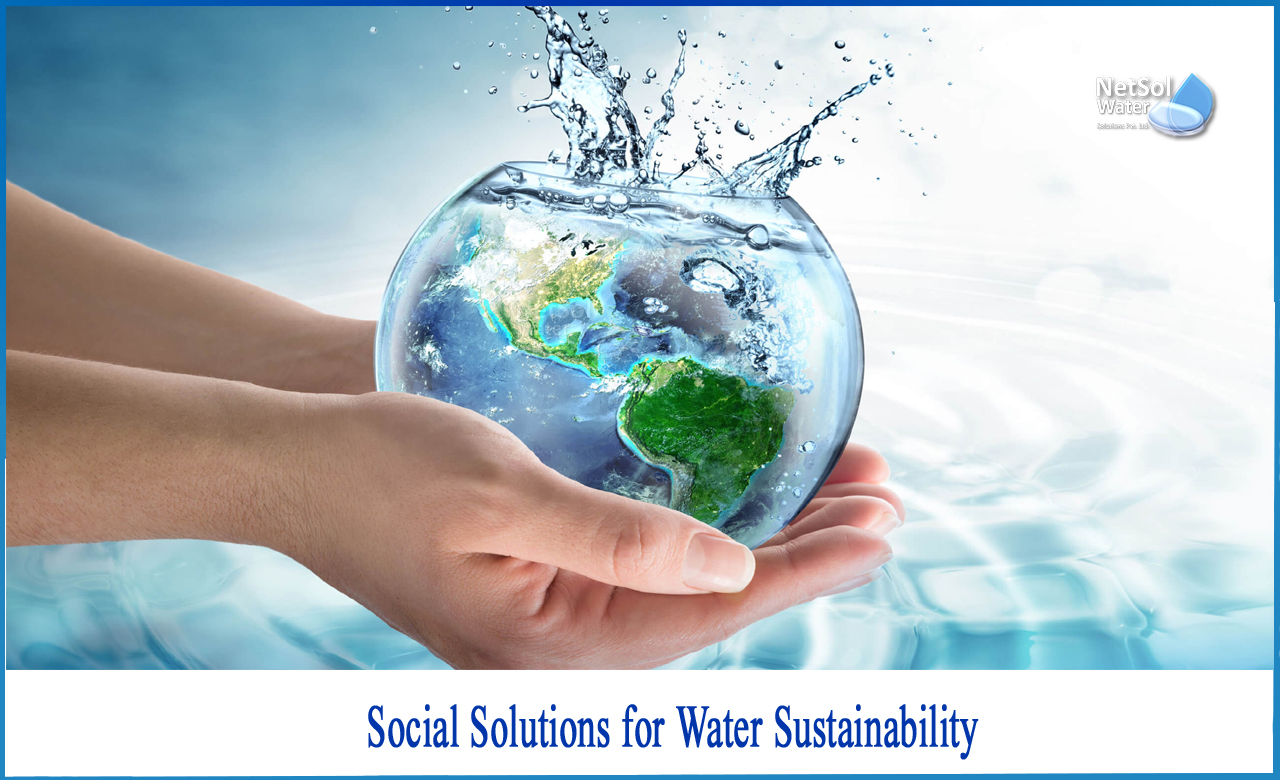Water crisis and its effect
Water is essential to human societies. Food, energy, human and ecosystem health, and the industrial items that society generates all require water. Because water has always been vital to society's existence and well-being, it has taken on cultural, social, spiritual, and political elements, as well as economic and public health ones, across time.
The quantity, quality, reliability, and cost of a society's water supply affects both directly and indirectly. Society suffers when there is too much or too little water, or when it is too filthy or too expensive. These issues appear to be occurring more frequently, with more intensity, and for longer periods of time.
Understanding and managing such issues is difficult, in part because societal reactions to policies meant to alleviate problems can result in unintended and unforeseen consequences. Finding ways to alleviate this stress needs citizens to educate themselves and collaborate with one another in the search for solutions that meet public and personal goals and conventions. We can model the long-term effects of such solutions on the operation of water systems.
What are some social solutions to water sustainability?
1: Developing water filtration system - It’s one thing to have access to water and entirely a different thing to have access to safe drinking water. Effective water filtering systems ensure that freshwater is safe to drink and does not make us sick. That is one of the reasons why companies all over the world are working to develop sophisticated water filtration systems that produce purified water free of bacteria, microbes, and other contaminants, and to bring this safe drinking water to as many schools, hospitals, workplaces, and homes as possible. Netsol provides the best water treatment plants for their customers to follow eco-friendly approach. Netsol has variety of water treatment such as
- Reverse Osmosis Plant or RO plant
- UV
- Trickling filters
2: Promoting water stewardship - To lessen the threat of water scarcity, every community on the planet must work together. Water stewards of all kinds are needed now more than ever. Water stewardship is a big part of the puzzle when it comes to limiting water scarcity, whether it means taking shorter showers, installing low-flow toilets, and collecting rainwater for garden use at home.
3:Preserving wetlands - Wetlands are disappearing at an alarming rate, yet protecting them could pay off handsomely. Currently, the Ramsar Convention, an international treaty, has helped to protect almost 2,000 wetlands.
4:Improving irrigation efficiency - One of the most significant drains on water resources is industrial agriculture. Simply switching from flood irrigation to sprinkler or drip irrigation might save a significant quantity of water in the agriculture industry. More efficient irrigation systems can considerably reduce water usage when combined with superior soil management practises such as no-till or limited tillage and mulching, which reduce evaporation from the soil.
Conclusion
Only through promoting efficiencies on both the supply and demand sides, water delivery system can be viable. Initiatives to meet demand for water will be more sustainable if we prioritise water conservation measures. Avoiding waste can help to reduce water usage and, as a result, the need for new resources will be delayed.
On the supply side, boosting water utility management and maintenance capabilities, reducing non-revenue water (NRW), leakages, and energy use, as well as improving staff ability to understand and run the system, are critical. Adoption of water-efficient equipment, on the demand side, can significantly cut water consumption.
A more sustainable water supply is achieved by investing in fewer water-intensive industrial operations and more energy-efficient buildings. Adoption of water efficient technologies is feasible due to concrete economic savings, social advantages, and a variety of environmental benefits.
Water supply sustainability necessitates a series of coordinated efforts rather than standalone ones. It is dependent on an individual's motivation to conserve water, Government laws, and changes in the construction sector, among other factors. The problem is to develop regulatory, incentive, and affordability measures to assure the system's long-term viability.
Netsol provides various technologies which will preserve water in order to attain water sustainability. This is our basic goal and that is why, we provide complete solutions for water and wastewater management.
Netsol Water is Greater Noida-based leading water & wastewater treatment plant manufacturer. We are industry's most demanding company based on client review and work quality. We are known as best commercial RO plant manufacturers, industrial RO plant manufacturer, sewage treatment plant manufacturer, Water Softener Plant Manufacturers and effluent treatment plant manufacturers. Apart from this 24x7 customer support is our USP. Call on +91-9650608473, or write us at enquiry@netsolwater.com for any support, inquiry or product-purchase related query.



